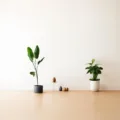In today’s consumer-driven society, material possessions can often be perceived as extensions of our identity and success. However, the pursuit of material wealth can sometimes lead to a sense of emptiness rather than fulfillment. In this article, we’ll explore how material possessions impact our lives and how we can find a balance that contributes to our well-being and happiness.
The Psychology Behind Materialism
Materialism, the importance ascribed to the ownership and acquisition of physical goods, has been the subject of much psychological research. Studies suggest that while material possessions can provide temporary happiness, they often do not lead to long-term satisfaction. This is due to a phenomenon known as ‘hedonic adaptation,’ where individuals become accustomed to new acquisitions and return to their baseline level of happiness over time.
Material Possessions and Self-Identity
Many people express themselves through the things they own, using material goods to communicate their status, personality, and values. While this can be a form of self-expression, it’s important to be mindful of not letting possessions define who we are. True self-worth comes from within and is not dependent on external factors.
Minimalism: A Path to Intentionality
Minimalism is a lifestyle choice that encourages people to live with fewer possessions, focusing on what is truly essential. By adopting a minimalist approach, individuals can experience greater freedom, reduced stress, and an increased capacity to appreciate the non-material aspects of life, such as relationships and experiences.
The Impact of Material Possessions on Well-being
While some material possessions can contribute positively to our well-being by providing comfort or convenience, an overemphasis on acquiring goods can lead to negative consequences. These can include financial stress, clutter, and the environmental impact of overconsumption. Striking a balance is key to ensuring that our possessions serve us, rather than the other way around.
Creating a Healthy Relationship with Possessions
To cultivate a healthy relationship with material possessions, it’s essential to practice gratitude, invest in experiences over things, and make conscious choices about what we bring into our lives. By doing so, we can enjoy our possessions without letting them dictate our happiness or self-worth.
FAQ on Material Possessions
- How can material possessions negatively affect our lives?
- Excessive focus on material possessions can lead to financial stress, clutter, environmental damage, and a sense of never being satisfied due to hedonic adaptation.
- What is minimalism, and how can it benefit us?
- Minimalism is a lifestyle that promotes living with less and focusing on what truly matters. Benefits include reduced stress, increased freedom, and a greater appreciation for life’s non-material aspects.
- Can material possessions make us happy?
- While possessions can provide temporary pleasure, long-term happiness is generally derived from relationships, experiences, and personal growth.
- How do material possessions relate to our self-identity?
- People often use possessions to express their personality, status, and values. However, it’s important to ensure that possessions are not the sole basis of our self-identity.
- How can one practice having a healthy relationship with possessions?
- Practicing gratitude, prioritizing experiences, and making intentional choices about acquisitions can help foster a balanced and healthy perspective on possessions.









